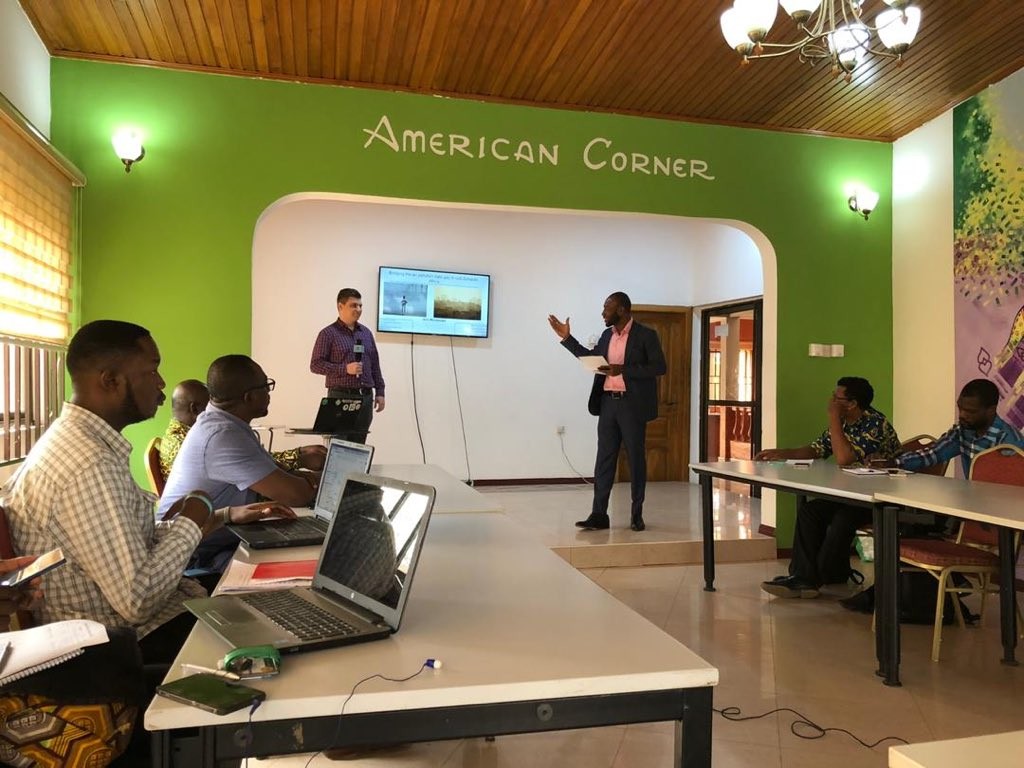The Center for Climate and Life Fellows are a group of leading Columbia University scientists who investigate the critical issue of how climate change impacts humanity. Read on to find out about some of their recent research progress and work in the news.
Dan Westervelt is in Accra, Ghana, where he’s participating in workshops on air quality modeling and forecasting at the Ghana Environmental Protection Agency, and he held a press conference for local media—check out his work in these stories from the Ghana News Agency, Modern Ghana, and the Ghanaian Times. On this trip, he’ll also travel to other African cities to install low-cost air pollution monitors. Westervelt is using funding from the Center for Climate and Life to establish a real-time air pollution-monitoring network for megacities in sub-Saharan Africa.
Fellow Kevin Uno and Rachel Lupien, a Lamont-Doherty Earth Observatory postdoc funded by the Center for Climate and Life, are spending time at the Mpala Research Centre and the Turkana Basin Institute in Kenya over the next three weeks. They’re teaching a field course in terrestrial paleoecology to Columbia and Yale University undergraduates at the Mpala Research Centre. Their work in Kenya will inform their Climate and Life-funded studies of the effects of past climate shifts on human culture and migration during the African Humid Period.

